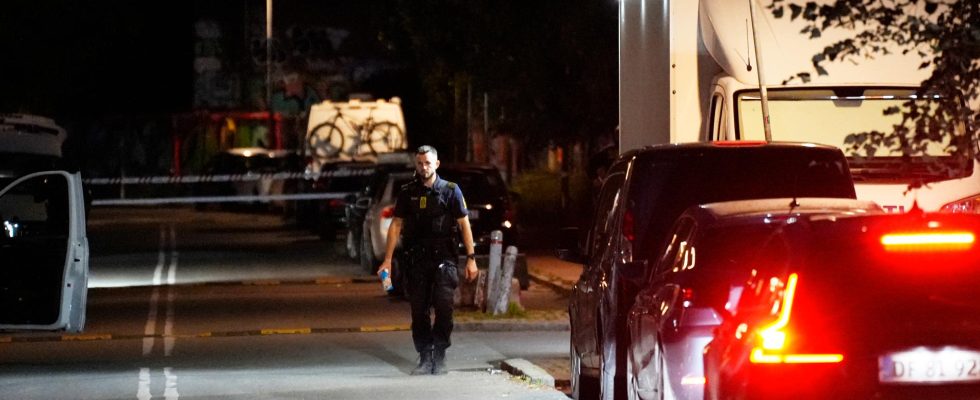full screen
Next
The police outside the Christiania district in Copenhagen after a man was shot dead in the sanctuary at the end of August. Archive image.
1 / 2Photo: Emil Helms/Ritzau Scanpix/TT
Buying and selling hashish in Christiania in Copenhagen may in the future result in double fines. If someone gets caught a second time, jail awaits.
After the fatal shooting on Pusher Street in the sanctuary, Denmark’s government wants to get tough.
The Danish government wants to amend the law so that it becomes possible to introduce tougher penalties in demarcated zones. One of the zones should be Pusher Street in the Christiania district, which is known for its open drug sales in so-called hash shops.
At the end of August, a 30-year-old man was shot dead and four other people were shot in Christiania in a conflict between two criminal gangs. After the incident, the sanctuary’s self-government has demanded that the police close the infamous street.
“Towards a permanent closure”
– This measure is the first major step towards a permanent closure of Pusher Street, says Minister of Justice Peter Hummelgaard (S) at a press conference.
In a so-called penalty zone, the purchase or sale of hashish should result in double punishment. In the case of a first offence, the fine is doubled, but if a person is caught a second time, prison awaits. However, it must be made clear in the law that people who have a documented and ongoing abuse of narcotics must receive a warning for a first offence.
Hulda Mader, Christiania’s spokesperson, believes that tougher penalties can reduce the demand for hashish and that the number of sellers on the street can decrease.
– I can imagine that there are some customers who will think that it is not so nice to have to pay a double fine and end up in prison, says Hulda Mader.
Already have a zoning ban
The government also wants to toughen the penalties for violating the so-called zone bans. The police in Denmark can already establish zone bans, which means that gang criminals are not allowed to stay in certain areas during a certain time of day.
A bill must be submitted to the Folketing – the Danish parliament – as soon as possible.
FACTSChristiania’s history
In the late 1960s, the Danish Armed Forces began to evacuate what was called Bådsmandsstræde barracks in Christianshavn in Copenhagen.
Squatters with dreams of building an alternative society moved in and on September 26, 1971, the “sanctuary Christiania” was proclaimed.
In 1989, a special law for Christiania was enacted by the Norwegian Parliament. Those who lived there received collective user rights and the right to some self-management. The agreement was terminated in 2004 until January 1, 2006.
In 2005–2007, Christiania and the state negotiated the future of the area but did not reach an agreement.
The Supreme Court ruled in 2011 that the state owns and has unlimited power over the area.
Since 2012, the land has been owned by Fonden Fristaden Christiania, which bought it for 76.2 million Danish kroner. Residents pay rent for their accommodation.
Read more
